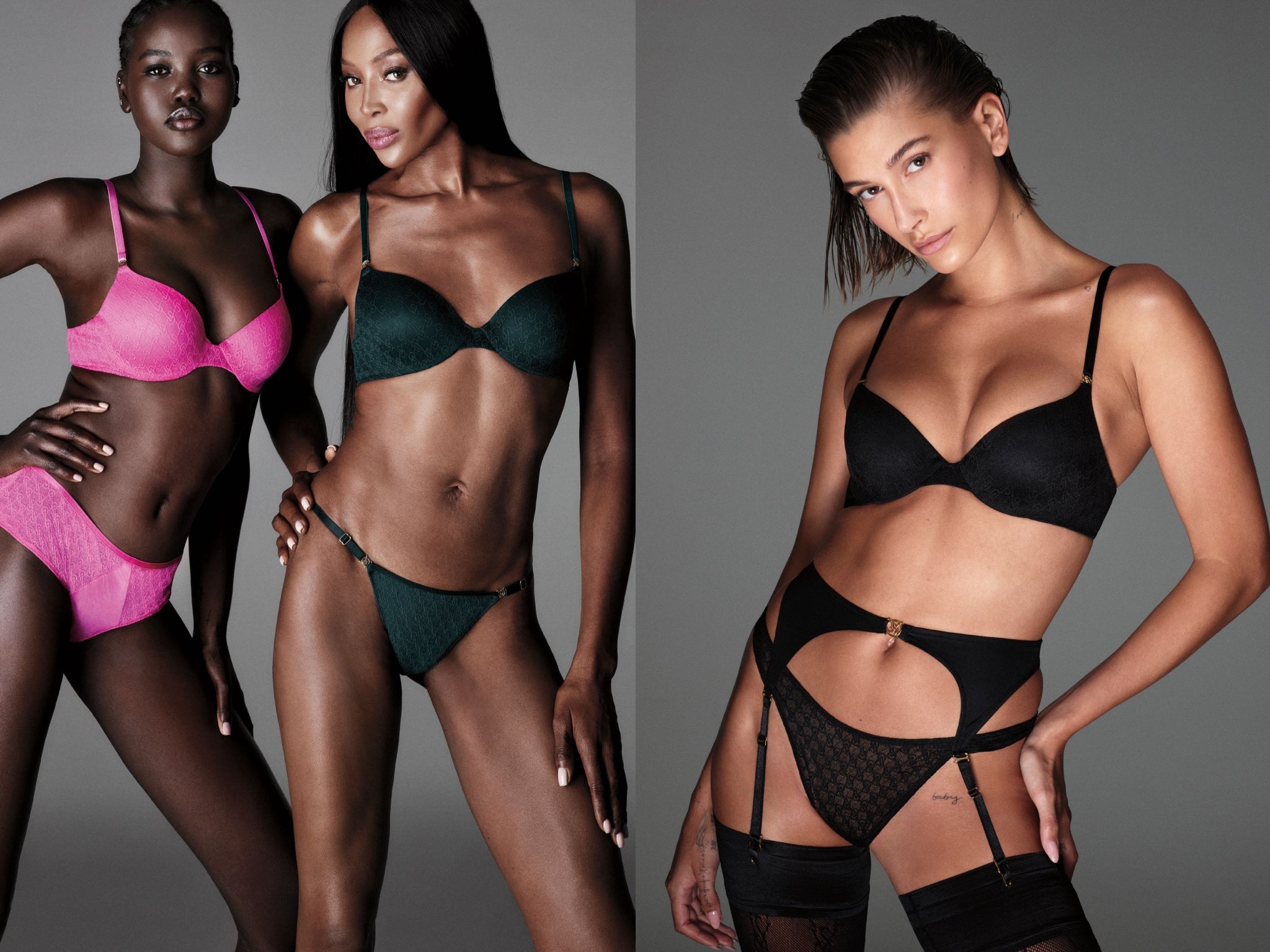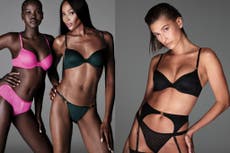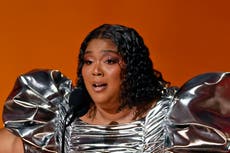The fashion industry still doesn’t care about different body shapes – whatever it wants you to think
Victoria’s Secret had worked hard to move away from its legacy of exclusivity, believes Olivia Petter. So why is the company now going back to its old ways?


Victoria’s Secret had been trying hard. At least, that’s what it wanted you to think. Back in 2021, the lingerie giants underwent a major rebrand, doing a complete U-turn on its infamous “Angels” that gave millennial women decades of body insecurities. It was time to diversify.
Gone was the line-up of exclusively svelte models (sorry, “athletes”, as VS often called them) strutting down the runway in flawless million-dollar “fantasy bras” and in their place came US soccer star Megan Rapinoe, Indian actress Priyanka Chopra Jonas, and plus-size model Paloma Elsesser. The idea was that these women would be celebrated for their achievements as opposed to their genetics. The brand’s famous annual show was also cancelled indefinitely.
The following year, the brand launched another similarly noble campaign that aimed to “celebrate the Victoria’s Secret of today” and featured a lineup of women of all ages, skin colours, shapes and physical abilities modelling its lingerie. “We’ve changed,” the promotional footage stated. “We see you. You’re multi-dimensional, ever-evolving, real. We promise to advocate for you. Now and forever. Stay close, we’re growing.”
Well, apparently they didn’t want to grow for very long. Because this week, Victoria’s Secret unveiled its newest Icon campaign, starring some of its most famous former Angels: Adriana Lima, Naomi Campbell, Gisele Bündchen, and Candice Swanepoel. Its new faces? Emily Ratajkowski, Adut Akech, and Hailey Bieber. Okay, so they’ve cast Elsesser again. But aside from her, looking at this VS lineup feels startlingly similar to one from what was supposed to be a defunct era for the lingerie giants.
"The talent featured in the Icon campaign are both dynamic women from the brand’s past and the present, who embody what it means to feel confident and powerful in their own unique way, with distinct and powerful voices, which makes them iconic," said Raul Martinez, Victoria’s Secret’s chief creative director, in an e-mail to Fashionista.
The campaign offers a sneak peek and what’s to come for the Victoria’s Secret World Tour – a combination event and feature-length film that will reimagine the brand’s fashion show, set to debut on Prime Video later next month. But just how different will it be if it’s promoting the exact same, singular image of female beauty it has long been derided for?
Don’t get me wrong, the Icon campaign looks great. Of course it does: it features stock Victoria’s Secret models, both conforming to and surpassing all of society’s beauty standards. But even with the inclusion of Elsesser, it feels like Victoria’s Secret is ticking a box as opposed to speaking to the wide-ranging bodies of its female customer base. It’s tokenism at its most brazen – and there’s nothing empowering or authentic about that. How can customers feel confident about their own bodies when they still don’t see them being valued or celebrated?
In light of everything Victoria’s Secret had promised us, this feels like a major backtrack. After all, let’s not forget how necessary a complete brand overhaul was. In 2019, the brand came under fire after it was revealed that its chief executive, Leslie H Wexner, had close ties to Jeffrey Epstein. Shortly after, a New York Times investigation shed light on allegations of misogyny, bullying, and harassment within the company.
Ed Razek, former executive at L Brands, the parent company of Victoria’s Secret, was also accused of multiple incidents of inappropriate contact with models, including trying to kiss them, asking them to sit on his lap and demanding they go nude in underwear fittings. Razek denied these allegations at the time.
Neither Razek nor Wexner may be involved with Victoria’s Secret anymore – both men stepped down following the controversies and as of 2021, L Brands no longer owns it – but their legacy feels somewhat intact. This was a brand built on exclusivity, shame, and misogyny. And for a while, it seemed like they were finally moving away from that, employing models that customers could connect with and truly celebrating all body types – not just because they felt they had to, but because they wanted to.
But now? It’s almost like it never happened, and are instead following in the footsteps of other major fashion brands who are more concerned with the optics of being diverse than actually being diverse at all.
Besides, as long as they cast at least one plus-size model, they can say they’re doing the job, right? Maybe that’s all that ever mattered.



Join our commenting forum
Join thought-provoking conversations, follow other Independent readers and see their replies
15Comments